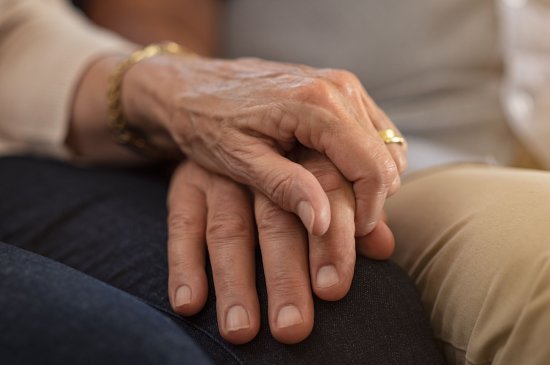Grandfather receives £900,000 after stroke misdiagnosis

Contact
Table of Contents
Osbornes secure settlement for stroke claim
Our medical negligence solicitors advised a grandfather who suffered a devastating stroke after carers missed 142 scheduled visits, leaving him without vital medication, has secured a £900,000 compensation settlement for his stroke misdiagnosis claim.
Severe Neglect
The 63-year-old man, whose identity is protected for legal reasons, relied on carers from Ashley Care LLP in Southend, Essex, to visit two to three times daily to prompt him to take Dabigatran, a crucial stroke-prevention medication.
However, over a 12-week period, carers failed to show up on 142 separate occasions—including 45 full days—resulting in him missing essential medication. Critically, carers did not visit at all in the four days leading up to his stroke.
Life-Changing Impact
The stroke left the man, now aged 69, paralysed down his right side, unable to speak, and significantly reduced his life expectancy. Due to his diminished mental capacity following the stroke, he was granted anonymity by the court.
His daughter shared:
“We were told he had only a 1% chance of survival. It’s a miracle he is still here, but he should never have been in this situation. If the carers had fulfilled their responsibilities, he would still be able to walk and talk. The neglect was appalling. He had been lying helplessly for days, making his condition far worse.”
Family’s Distress
The man, who previously experienced depression, anxiety, and other mental health issues, required daily support from Ashley Care. His family trusted carers to ensure he took medication and encouraged his independence, unaware visits were frequently missed.
His daughter recounted:
“My dad collapsed but managed to call his niece, saying only ‘help’. When found, he was lying on the floor, unable to speak and covered in faeces. It’s devastating that those entrusted with his care repeatedly neglected their duties.”
She added:
“My children now don’t have the active grandad they should have. He was my best friend and would have been wonderful with them—this tragedy has robbed us of that. Families relying on carers must check that care visits are happening; we trusted carers who ultimately failed us. Care companies must realise lives depend on them.”
Stephanie Prior commented
Stephanie Prior, who represented the family, commented:
“My client is fortunate to have survived but has had his life irreversibly changed by negligent care. This tragic case highlights the critical need for care providers to consistently attend all scheduled visits, given the profound responsibility they carry.”
Support and Advice
If you have experienced negligent care and wish to discuss your case, contact the cardiac negligence team at Osbornes Law on 0207 485 8811 or complete an online enquiry form.
Share this article
“Small but very effective and experienced team so every client benefits from the personal touch but also highly skilled litigation know-how. Capability of the team means they can handle all aspects of very complex cases as well as straightforward matters.”
“Osbornes Law is an established firm which handles a breadth of complex and high-value clinical negligence matters.”
Stephanie Prior leads the team with real experience and commitment to her clients. Able to spot a good case early on and see it through to conclusion.
Stephanie Prior leads a strong and competent team.
With 10 years of experience as a registered general nurse, stephanie is well placed to support clients through complex and sensitive claims.
Stephanie Prior ‘leads the team with real experience and commitment to her clients’
"Stephanie Prior is very empathetic and practical, she gets to the heart of a case quickly."
"Stephanie Prior is highly respected in the marketplace, with a great wealth of experience, superb judgment and medical knowledge that is second to none."
"Stephanie has always shown great judgment and common sense whilst building valuable relationships with her opponents."
"Stephanie Prior is a standout solicitor."
"Stephanie Prior is an experienced lawyer with immense knowledge of her specialism, which allows her to run her cases with strategic precision."
"Stephanie knows her way effortlessly around any clinical negligence issue and has a great strategic mind."
"I know [we have] expressed our appreciation, but I also wanted to thank you for all your hard work, time and patience in pursuing mum’s claim through to a successful outcome - your kind and professional approach was genuinely appreciated."
“May I take this opportunity to thank you for your patience and true compassion in yet another very tough year of representation on the behalf of my wife. I certainly must say you did it all with amazing stamina and positivity which regenerated my self-esteem…. You honestly eased the pain and I can see a healing process ahead.”
Stephanie has developed a particularly strong reputation for her handling of birth injury claims, as well as cases concerning surgical negligence and delays in surgery.
"Stephanie Prior takes on complex cases and gets excellent results. She has a background in medicine which serves her clients well and is a realistic but tough litigator."
"Stephanie Prior is hugely dedicated, adored by her clients, tenacious, efficient and extremely knowledgeable."
"Stephanie Prior is very good with troubled clients and is easily able to make them feel at ease."
"Stephanie shows sensitivity and deals with things in an understanding way."
The lawyers in the team are highly experienced and will drive cases very hard on behalf of their clients.
"Stephanie Prior has a realistic attitude to the complexities of the cases. She wins the trust of her clients and goes the extra mile to ensure they get the best outcomes."
Stephanie’s background in medicine gives her an ability to read between the lines where medical records and expert evidence are concerned and is a great asset.
"Her knowledge base is second to none and her understanding of the litigation process stands out, as does her ability to work collaboratively."
"Stephanie Prior... manages a varied caseload, including obstetric claims, child and adult brain injury cases and fatal and non-fatal spinal cord injury cases."
"Stephanie is experienced, knowledgeable of all aspects of clinical negligence work, and strategic in running cases."
"Key team members include the approachable, compassionate and efficient Stephanie Prior."
Stephanie Prior is always very professional and kind. Highly recommended.
Stephanie Prior is ‘very warm’ and ‘caring’, and an ‘exceptional professional’.
Stephanie Prior continues to receive widespread praise from clients, who state that she explains the legal aspects of the case very clearly, and she is also a caring person who handles cases on a personal level.
Medical Negligence InsightsVIEW ALL
- 4.2.2025
Claim Settled for Child’s Surgery Injuries
Osbornes secures settlement for child’s surgery-related injuries Osbornes Law successfully represented a minor, X, in a claim against two...
Read more - 4.1.2022
Five-figure Compensation for Cardiac Negligence
Cardiac Negligence Case Background Osbornes Law represented a 42-year-old Polish man who initially visited his local hospital’s Accident and...
Read more - 13.7.2021
Heart Failure Claim Against NHS Trust
Claim against Epsom & St Helier University Hospitals NHS Trust Nick Leahy, medical negligence solicitor at Osbornes Law was instructed...
Read more - 14.1.2020
Misdiagnosis of heart problems
Failure to diagnose heart problems – education is the key Our hearts are the pumps that keep us alive by pushing...
Read more - 13.8.2019
CQC finds long delays at Royal Cornwall Hospitals
A report from inspectors at the Care Quality Commission (CQC) has revealed that patients who have had to wait too...
Read more - 17.4.2017
Can A New Blood Test Diagnose Heart Attacks...
It has been recently reported that new research has developed new blood tests to diagnose heart attacks. The British Heart...
Read more








